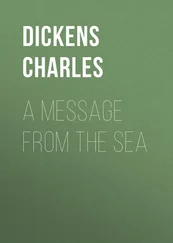Charles Dickens - Pictures from Italy
Здесь есть возможность читать онлайн «Charles Dickens - Pictures from Italy» весь текст электронной книги совершенно бесплатно (целиком полную версию без сокращений). В некоторых случаях можно слушать аудио, скачать через торрент в формате fb2 и присутствует краткое содержание. Жанр: Классическая проза, на английском языке. Описание произведения, (предисловие) а так же отзывы посетителей доступны на портале библиотеки ЛибКат.
- Название:Pictures from Italy
- Автор:
- Жанр:
- Год:неизвестен
- ISBN:нет данных
- Рейтинг книги:5 / 5. Голосов: 1
-
Избранное:Добавить в избранное
- Отзывы:
-
Ваша оценка:
- 100
- 1
- 2
- 3
- 4
- 5
Pictures from Italy: краткое содержание, описание и аннотация
Предлагаем к чтению аннотацию, описание, краткое содержание или предисловие (зависит от того, что написал сам автор книги «Pictures from Italy»). Если вы не нашли необходимую информацию о книге — напишите в комментариях, мы постараемся отыскать её.
Pictures from Italy — читать онлайн бесплатно полную книгу (весь текст) целиком
Ниже представлен текст книги, разбитый по страницам. Система сохранения места последней прочитанной страницы, позволяет с удобством читать онлайн бесплатно книгу «Pictures from Italy», без необходимости каждый раз заново искать на чём Вы остановились. Поставьте закладку, и сможете в любой момент перейти на страницу, на которой закончили чтение.
Интервал:
Закладка:
A short ride from this lake, brought us to Ronciglione; a little town like a large pig-sty, where we passed the night. Next morning at seven o'clock, we started for Rome.
As soon as we were out of the pig-sty, we entered on the Campagna Romana; an undulating flat (as you know), where few people can live; and where, for miles and miles, there is nothing to relieve the terrible monotony and gloom. Of all kinds of country that could, by possibility, lie outside the gates of Rome, this is the aptest and fittest burial-ground for the Dead City. So sad, so quiet, so sullen; so secret in its covering up of great masses of ruin, and hiding them; so like the waste places into which the men possessed with devils used to go and howl, and rend themselves, in the old days of Jerusalem. We had to traverse thirty miles of this Campagna; and for two-and-twenty we went on and on, seeing nothing but now and then a lonely house, or a villainous-looking shepherd: with matted hair all over his face, and himself wrapped to the chin in a frowsy brown mantle, tending his sheep. At the end of that distance, we stopped to refresh the horses, and to get some lunch, in a common malaria-shaken, despondent little public-house, whose every inch of wall and beam, inside, was (according to custom) painted and decorated in a way so miserable that every room looked like the wrong side of another room, and, with its wretched imitation of drapery, and lop-sided little daubs of lyres, seemed to have been plundered from behind the scenes of some travelling circus.
When we were fairly going off again, we began, in a perfect fever, to strain our eyes for Rome; and when, after another mile or two, the Eternal City appeared, at length, in the distance; it looked like—I am half afraid to write the word—like LONDON!!! There it lay, under a thick cloud, with innumerable towers, and steeples, and roofs of houses, rising up into the sky, and high above them all, one Dome. I swear, that keenly as I felt the seeming absurdity of the comparison, it was so like London, at that distance, that if you could have shown it me, in a glass, I should have taken it for nothing else.
CHAPTER X
ROME
WE entered the Eternal City, at about four o'clock in the afternoon, on the thirtieth of January, by the Porta del Popolo, and came immediately—it was a dark, muddy day, and there had been heavy rain—on the skirts of the Carnival. We did not, then, know that we were only looking at the fag end of the masks, who were driving slowly round and round the Piazza until they could find a promising opportunity for falling into the stream of carriages, and getting, in good time, into the thick of the festivity; and coming among them so abruptly, all travel-stained and weary, was not coming very well prepared to enjoy the scene.
We had crossed the Tiber by the Ponte Molle two or three miles before. It had looked as yellow as it ought to look, and hurrying on between its worn-away and miry banks, had a promising aspect of desolation and ruin. The masquerade dresses on the fringe of the Carnival, did great violence to this promise. There were no great ruins, no solemn tokens of antiquity, to be seen;—they all lie on the other side of the city. There seemed to be long streets of commonplace shops and houses, such as are to be found in any European town; there were busy people, equipages, ordinary walkers to and fro; a multitude of chattering strangers. It was no more MY Rome: the Rome of anybody's fancy, man or boy; degraded and fallen and lying asleep in the sun among a heap of ruins: than the Place de la Concorde in Paris is. A cloudy sky, a dull cold rain, and muddy streets, I was prepared for, but not for this: and I confess to having gone to bed, that night, in a very indifferent humour, and with a very considerably quenched enthusiasm.
Immediately on going out next day, we hurried off to St. Peter's. It looked immense in the distance, but distinctly and decidedly small, by comparison, on a near approach. The beauty of the Piazza, on which it stands, with its clusters of exquisite columns, and its gushing fountains—so fresh, so broad, and free, and beautiful—nothing can exaggerate. The first burst of the interior, in all its expansive majesty and glory: and, most of all, the looking up into the Dome: is a sensation never to be forgotten. But, there were preparations for a Festa; the pillars of stately marble were swathed in some impertinent frippery of red and yellow; the altar, and entrance to the subterranean chapel: which is before it: in the centre of the church: were like a goldsmith's shop, or one of the opening scenes in a very lavish pantomime. And though I had as high a sense of the beauty of the building (I hope) as it is possible to entertain, I felt no very strong emotion. I have been infinitely more affected in many English cathedrals when the organ has been playing, and in many English country churches when the congregation have been singing. I had a much greater sense of mystery and wonder, in the Cathedral of San Mark at Venice.
When we came out of the church again (we stood nearly an hour staring up into the dome: and would not have “gone over” the Cathedral then, for any money), we said to the coachman, “Go to the Coliseum. “ In a quarter of an hour or so, he stopped at the gate, and we went in.
It is no fiction, but plain, sober, honest Truth, to say: so suggestive and distinct is it at this hour: that, for a moment—actually in passing in—they who will, may have the whole great pile before them, as it used to be, with thousands of eager faces staring down into the arena, and such a whirl of strife, and blood, and dust going on there, as no language can describe. Its solitude, its awful beauty, and its utter desolation, strike upon the stranger the next moment, like a softened sorrow; and never in his life, perhaps, will he be so moved and overcome by any sight, not immediately connected with his own affections and afflictions.
To see it crumbling there, an inch a year; its walls and arches overgrown with green; its corridors open to the day; the long grass growing in its porches; young trees of yesterday, springing up on its ragged parapets, and bearing fruit: chance produce of the seeds dropped there by the birds who build their nests within its chinks and crannies; to see its Pit of Fight filled up with earth, and the peaceful Cross planted in the centre; to climb into its upper halls, and look down on ruin, ruin, ruin, all about it; the triumphal arches of Constantine, Septimus Severus, and Titus; the Roman Forum; the Palace of the Caesars; the temples of the old religion, fallen down and gone; is to see the ghost of old Rome, wicked, wonderful old city, haunting the very ground on which its people trod. It is the most impressive, the most stately, the most solemn, grand, majestic, mournful sight, conceivable. Never, in its bloodiest prime, can the sight of the gigantic Coliseum, full and running over with the lustiest life, have moved one's heart, as it must move all who look upon it now, a ruin. GOD be thanked: a ruin!
As it tops the other ruins: standing there, a mountain among graves: so do its ancient influences outlive all other remnants of the old mythology and old butchery of Rome, in the nature of the fierce and cruel Roman people. The Italian face changes as the visitor approaches the city; its beauty becomes devilish; and there is scarcely one countenance in a hundred, among the common people in the streets, that would not be at home and happy in a renovated Coliseum to-morrow.
Here was Rome indeed at last; and such a Rome as no one can imagine in its full and awful grandeur! We wandered out upon the Appian Way, and then went on, through miles of ruined tombs and broken walls, with here and there a desolate and uninhabited house: past the Circus of Romulus, where the course of the chariots, the stations of the judges, competitors, and spectators, are yet as plainly to be seen as in old time: past the tomb of Cecilia Metella: past all inclosure, hedge, or stake, wall or fence: away upon the open Campagna, where on that side of Rome, nothing is to be beheld but Ruin. Except where the distant Apennines bound the view upon the left, the whole wide prospect is one field of ruin. Broken aqueducts, left in the most picturesque and beautiful clusters of arches; broken temples; broken tombs. A desert of decay, sombre and desolate beyond all expression; and with a history in every stone that strews the ground.
Читать дальшеИнтервал:
Закладка:
Похожие книги на «Pictures from Italy»
Представляем Вашему вниманию похожие книги на «Pictures from Italy» списком для выбора. Мы отобрали схожую по названию и смыслу литературу в надежде предоставить читателям больше вариантов отыскать новые, интересные, ещё непрочитанные произведения.
Обсуждение, отзывы о книге «Pictures from Italy» и просто собственные мнения читателей. Оставьте ваши комментарии, напишите, что Вы думаете о произведении, его смысле или главных героях. Укажите что конкретно понравилось, а что нет, и почему Вы так считаете.












